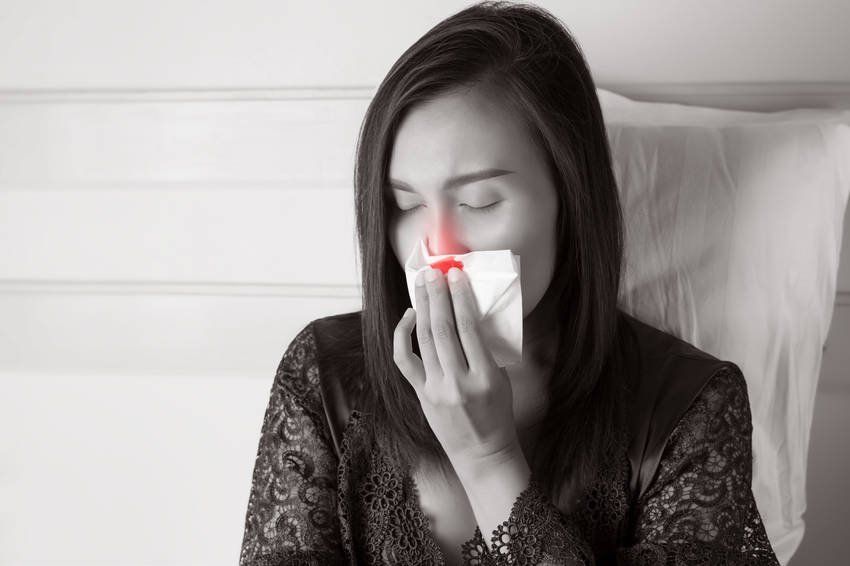
ALLERGIC RHINITIS
Overview
If you have allergic rhinitis, your immune system mistakenly identifies a typically harmless substance as an intruder. This substance is called an allergen. The immune system responds to the allergen by releasing histamine and chemical mediators that typically cause symptoms in the nose, throat, eyes, ears, skin and roof of the mouth.
Seasonal allergic rhinitis (hay fever) is most often caused by pollen carried in the air during different times of the year in different parts of the country.
Allergic rhinitis can also be triggered by common indoor allergens such as the dried skin flakes, urine and saliva found on pet dander, mold, droppings from dust mites and cockroach particles. This is called perennial allergic rhinitis, as symptoms typically occur year-round.
In addition to allergen triggers, symptoms may also occur from irritants such as smoke and strong odors, or to changes in the temperature and humidity of the air. This happens because allergic rhinitis causes inflammation in the nasal lining, which increases sensitivity to inhalants.
Many people with allergic rhinitis are prone to allergic conjunctivitis (eye allergy). In addition, allergic rhinitis can make symptoms of asthma worse for people who suffer from both conditions.
Symptoms
Allergic rhinitis symptoms include:
- Itching in the nose, roof of the mouth, throat, eyes
- Sneezing
- Stuffy nose (congestion)
- Runny nose
- Tearing eyes
- Dark circles under the eyes
Hay fever symptoms tend to flare up in the spring and fall. Perennial allergic rhinitis symptoms are year-long.
Diagnosis
An allergist / immunologist has specialized training and experience to diagnose specific allergens that trigger your illness, or to determine if your symptoms are non-allergic. Your allergist will take a thorough health history followed by allergy testing. Skin tests or blood tests are the most common methods for determining your allergic rhinitis triggers.
Content was based on American Academy of Allergy Asthma & Immunology
Allergy Associates of the Palm Beaches
Allergy Associates of the Palm Beaches | All Rights Reserved.
